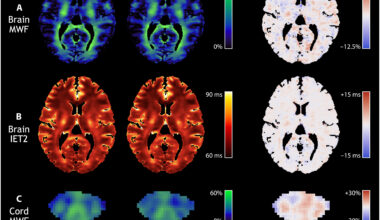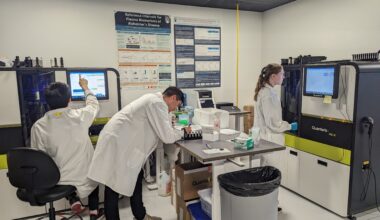As few as five per cent of new cases of Multiple Sclerosis (MS) are diagnosed in children, but to better understand the disease, children may be our brightest source of hope. The Multiple Sclerosis Society of Canada and Multiple Sclerosis Scientific Research Foundation have announced new funding that will propel research into pediatric MS and the gut microbiome’s role in autoimmune and brain diseases.
“This small percentage of MS cases actually represents a critical opportunity to potentially discover what causes MS,” says Dr. Helen Tremlett, Canada Research Chair and PI on the gut microbiome project that recently received the funding and will link in with the broader Canadian Demyelinating Disease (CDD) study led by Dr. Brenda Banwell. “Through the families, we’re typically able to get a more complete health and lifestyle history, and we’re closer to the onset of the disease; there is less history to sort through with kids, and we’re better able to pinpoint when the disease took hold.”
The MS Society of Canada and MS Scientific Research Foundation have provided $500,000 over three years for this research as the fifth stage in the ongoing CDD study. The CDD study – headed by pediatric MS neurologist Dr. Brenda Banwell from The Hospital for Sick Children and Children’s Hospital of Philadelphia (CHOP) – includes all 17 pediatric health care institutions in Canada, six additional Canadian sites as well CHOP.
“The launch of this study represents an important advancement in pediatric research and serves as a great example of building on research progress,” says Dr. Karen Lee, Vice President, Research, MS Society of Canada.
“I look forward to seeing what Dr. Helen Tremlett and her team will uncover in terms of the role that the natural bacteria that lives within us plays in MS. It is exciting that they will be collecting information from one of the most comprehensive pediatric MS cohorts in the world, established right here in Canada under the leadership of Dr. Banwell and with support from the MS Society and MS Scientific Research Foundation.”
With such excitement and possibility, enrolment in this first-of-its-kind multi-centre study has already begun. Dr. Tremlett, for her part, has been at the forefront of research linking MS and the gut microbiome – her work with Dr. Emmanuelle Waubant at the University of California, San Francisco, offers preliminary data in support of a link between the gut and neurodegenerative disease, specifically pediatric MS. This study will also bring together, for the first time, both the Canadian and US Pediatric MS and demyelinating disease networks.
“The microbiome is so important for a number of reasons,” says Dr. Tremlett. “The bacteria in your gut educates your immune system, and vice versa. We already know there’s a gut-brain connection, directly through the vagus nerve for instance, also via the immune system and perhaps through serotonin production – around 90 per cent of which is produced in your gut. Preliminary data shows we’re on the right track with this – we’re examining the link and trying to understand the influence of the gut microbiota in MS and MS on the gut microbiota.”
Dr. Tremlett’s research at the University of California, where she recently spent sabbatical time, has focused on a cohort of 18 children with MS and 17 healthy children.
“We discovered that while there was no huge difference in the overall composition, richness and diversity of the gut microbiota between the two groups of children,” says Dr. Tremlett. “Some very interesting, subtle differences were observed and the MS drug treatments appeared influential – we really believe we’re onto something important in pursuing these lines of research.”


